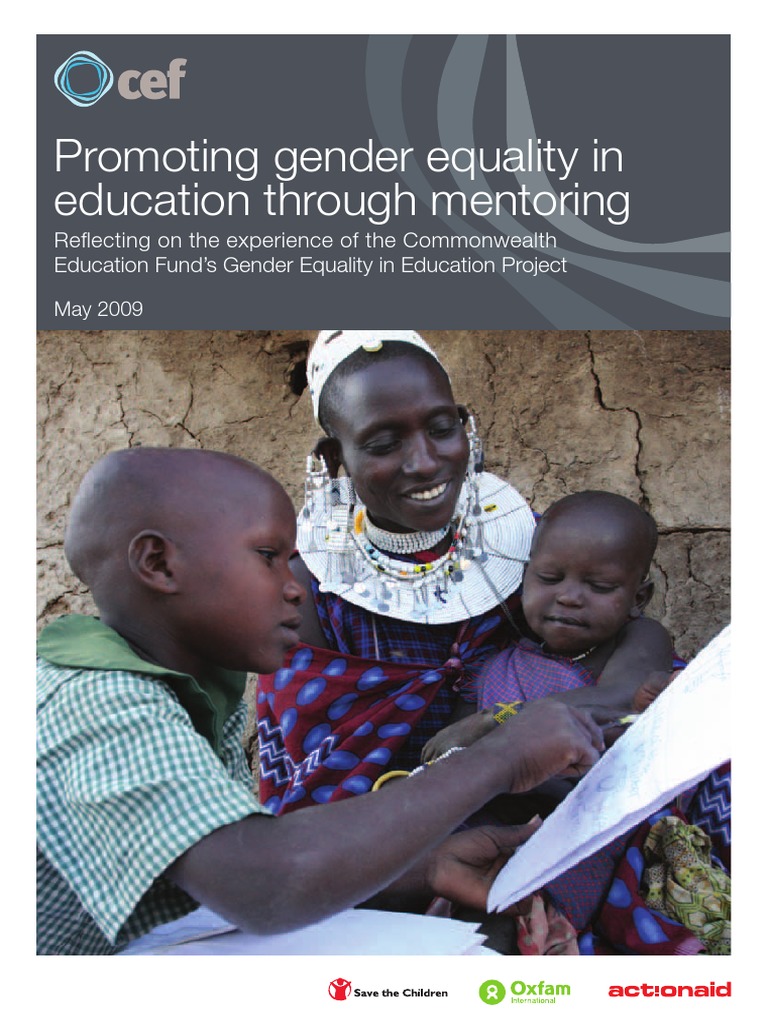The Bahá’í teachings proffer a profound vision for the advancement of gender equality through the transformative medium of education. As an intricate tapestry woven through the fabric of humanity, the quest for gender equity is underscored by moral imperatives that resonate within the teachings of Bahá’u’lláh. The emphasis on education as a catalyst for social and moral progress is pivotal in cultivating an environment where both men and women can flourish equally.
At the onset, it is crucial to recognize that education serves not merely as an individual right but as a collective imperative. The Bahá’í faith underscores that the advancement of humanity hinges on the education of both genders. Gender equality, as envisioned by Bahá’í principles, transcends mere statistical parity in educational attainment; it is a holistic paradigm that aligns with the inherent dignity, worth, and potential of every individual. This framework invites a deliberate shift in perspective — one that prompts society to view education as a universal birthright.
The Bahá’í perspective on education posits that it should not be confined to the transmission of knowledge; rather, it should encompass moral and spiritual development. This is particularly significant in the context of gender equality. The teachings indicate that the elevation of women is essential for the progress of society as a whole. This belief is rooted in the assertion that women play an indispensable role in the nurturing and education of future generations, thereby rendering their empowerment as a prerequisite for holistic societal advancement.
To materialize the promise of gender equality, it becomes imperative to dismantle the systemic barriers that obstruct women’s access to education. Historical injustices and cultural prejudices often manifest in the form of discriminatory practices that inhibit women’s educational opportunities. The Bahá’í teachings advocate for the elimination of such practices, advocating instead for an environment conducive to the equitable development of all individuals, irrespective of gender.
Furthermore, the Bahá’í faith encourages a curriculum that integrates various dimensions of knowledge — scientific, moral, and spiritual — thereby promoting critical thinking and a deeper understanding of the interconnectedness of all human beings. The teachings emphasize that education should nurture a sense of purpose and responsibility towards the community, fostering a spirit of altruism and service. By instilling these values, educational systems can effectively contribute to the dismantling of gender biases that pervade society.
In addition to fostering equitable access to education, the Bahá’í teachings highlight the importance of mentorship in the educational journey, particularly for women and girls. Mentorship acts as a transformative force, enabling aspiring individuals to navigate the complexities of their learning environments. The establishment of mentorship programs can provide aspiring female leaders with the necessary tools to advocate for their needs and navigate societal obstacles. These programs serve as a powerful testament to the Bahá’í commitment to gender equality by creating spaces for empowerment and collaboration.
In juxtaposing this approach with traditional educational paradigms, one discerns a marked departure from approaches that perpetuate exclusion or diminish aspirations based on gender. The Bahá’í teachings endorse a culture of inclusivity, thereby positioning education as a vehicle for transformational change, enabling individuals to transcend societal limitations imposed by entrenched gender norms. The alignment of educational objectives with spiritual values creates a fertile ground for cultivating socially responsible citizens, keen on contributing positively to society.
The essential dynamic of education within the Bahá’í framework emphasizes lifelong learning, urging continuous engagement beyond formal education. This notion recognizes that education must be an evolving journey, guided by the interplay of experience and knowledge acquisition. As individuals progress through life, they are called upon to grapple with societal challenges and contribute solutions. A gender-equal educational framework fosters not only academic accomplishment but also the resilience and adaptability necessary to navigate an ever-changing world.
In the context of the global community, women’s education is instrumental in achieving sustainable development goals. By educating women, societies unlock a reservoir of potential that translates into economic growth, improved health outcomes, and enhanced social cohesion. The Bahá’í teachings resonate with this truth, positing that as women gain access to education, they uplift entire communities, bridging gaps of inequality that have persisted for generations. This ripple effect amplifies the collective well-being of society, fostering a harmonious coexistence.
Moreover, the interplay between modern educational technologies and Bahá’í principles presents a rich avenue for innovation in promoting gender equality. Digital platforms can serve as tools for disseminating knowledge, creating networks, and fostering collaboration on a global scale. Embracing technology enhances the reach and impact of educational initiatives, providing unprecedented opportunities for women and girls to engage with learning resources that were previously inaccessible.
Throughout this exploration of the interaction between Bahá’í teachings and gender equality through education, one cannot help but recognize the challenge ahead. Transforming educational systems into bastions of equity requires commitment and concerted effort at multiple levels of society. However, the promise of a world where gender equality is a norm rather than an aspiration beckons. By continuing to advance these teachings, individuals and communities can contribute to a paradigm shift that redefines gender roles and fosters an environment where all can thrive.
In conclusion, the Bahá’í teachings present a comprehensive framework for achieving gender equality through education. By embracing the principles of inclusivity, mentorship, and lifelong learning, society can cultivate an enlightened citizenry equipped to confront the pervasive issue of gender inequality. In aligning educational initiatives with these teachings, the pathway to an equitable, prosperous future becomes clearer, challenging us all to take action in fostering a just world.
